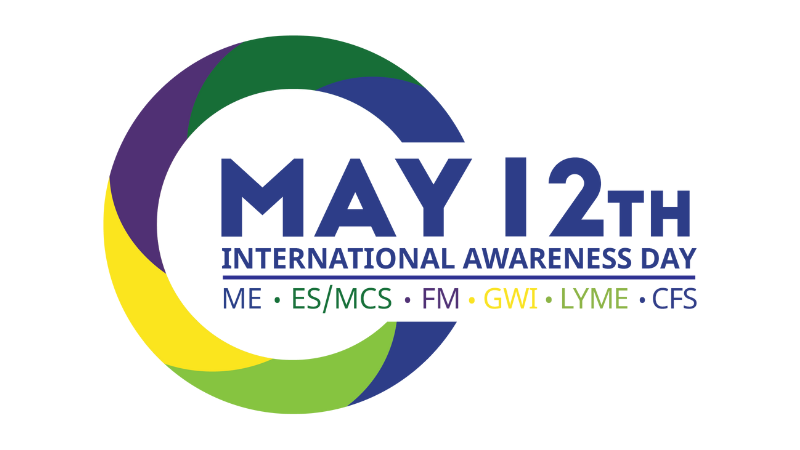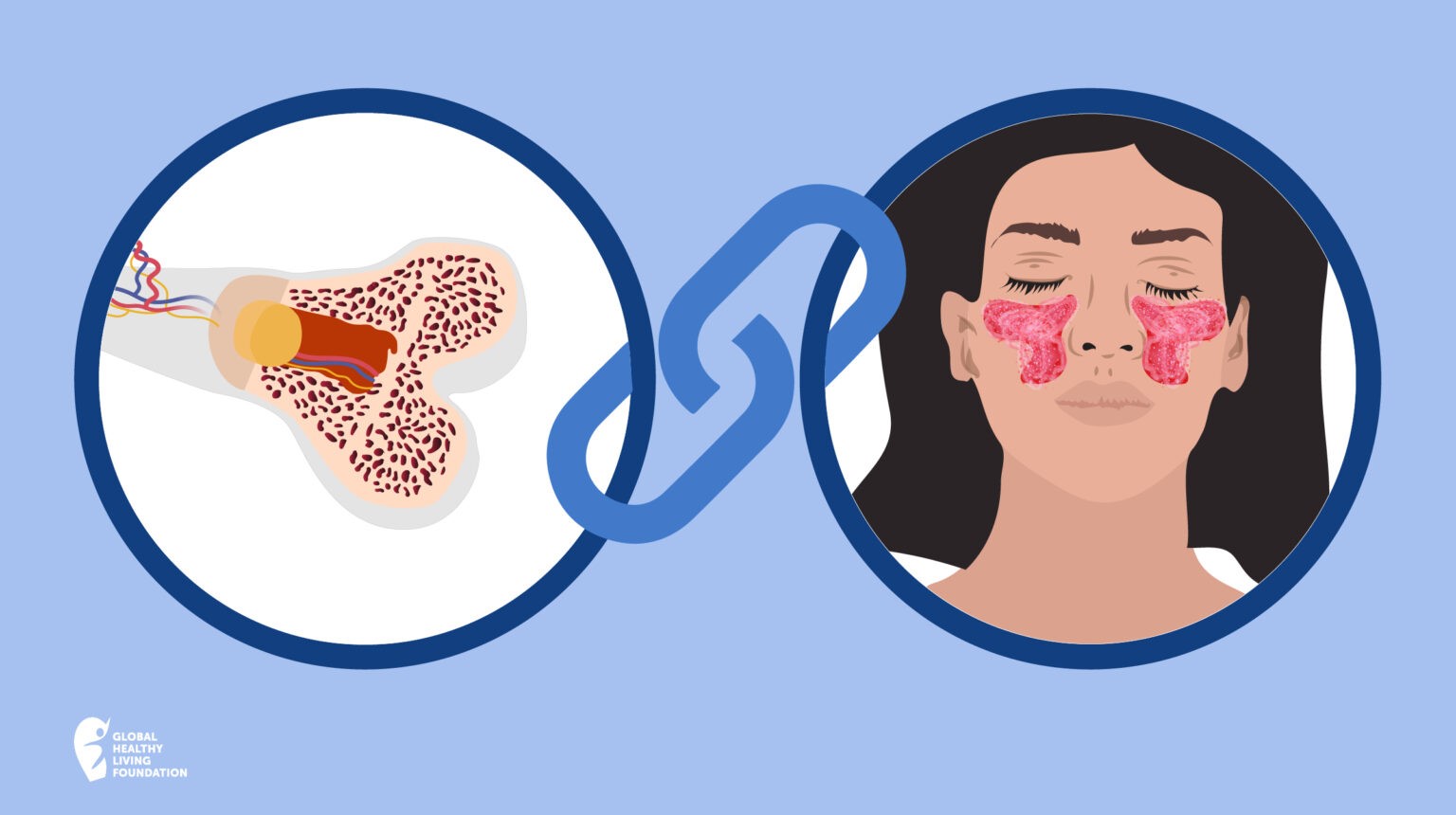

Chronic immunological and neurological diseases (CINDs) aren’t well known by the general public as they are largely invisible conditions. However, they can be extremely debilitating and misunderstood. The aim of International May 12th Awareness Day is to increase awareness of these conditions and their impact on people living with them.
May 12th was chosen for this day as it is the birthday of Florence Nightingale as it is believed she suffered from myalgic encephalomyelitis/chronic fatigue syndrome most of her life.
The main conditions highlighted by this awareness day are:
- Myalgic encephalomyelitis/chronic fatigue syndrome (ME/CFS)
- Fibromyalgia
Other conditions within this group include:
- Lyme disease
- Multiple chemical sensitivity syndrome
- Addison’s disease
- Alzheimer’s disease
- Autism
- Celiac disease
- Chronic myofascial pain
- Crohn’s disease
- Epilepsy
- Gulf War illness
- Irritable bowel syndrome (IBS)
- Lou Gehrig’s (ALS)
- Lupus
- Mold/biotoxin illness
- Multiple sclerosis (MS)
- Orthostatic intolerance (OI)
- Parkinson’s disease
- Postural orthostatic tachycardia syndrome (POTS)
- Reflex Sympathetic Dystrophy Syndrome (RSD)
- Ulcerative Colitis
Here’s an overview of the two conditions we believe are most common within our community.
Myalgic Encephalomyelitis/Chronic Fatigue Syndrome (ME/CFS)
Myalgic encephalomyelitis and chronic fatigue syndrome are two names for the same condition. The most distinguishing symptom of this condition is a persistent and draining form of mental and physical fatigue that goes way beyond being tired. Sleep does not help and normal daily activities can feel impossible to achieve.
It appears to affect all age groups but is most common in adults between their 20s and 40s. It’s also twice as common in females than in males. There is currently no known cause or cure for ME/CFS but factors such as a recent infection, genetics and environmental triggers can play a role.
Other symptoms of ME/CFS include:
- Brain fog — thinking problems, loss of memory or poor concentration
- Pain — headaches, muscle pain or joint pain
- Unrefreshing sleep or sleep disturbance
- A sore throat
- Feeling dizzy, lightheaded or sick
- Feeling like your heart is beating fast
ME/CFS can often be managed by pacing activities to conserve energy over the course of the day. Some people find changing the types of food they consume can be helpful. Dietitians can help people develop meal plans to accommodate their individual needs.
Fibromyalgia
Like ME/CFS, fibromyalgia is a painful and debilitating condition that drains energy and makes everyday tasks challenging. It is related to the nervous, endocrine (hormonal) and immune systems and involves similar triggering factors to ME/CFS. It affects about 2 in every 100 people. It’s more common in females than males and usually affects people aged 20 to 60 years.
Fibromyalgia is a syndrome which means it includes a collection of symptoms. Groups of symptoms tend to occur together in people with fibromyalgia, but the groups are not the same for each person. Symptoms can also come and go. This wide variety of symptoms can make it challenging to diagnose the disease.
One of the distinguishing symptoms of fibromyalgia is the amplification of sensory inputs to the brain. This can mean a severely increased perception of pain, even when the source could be as mild as the touch of fabric on the skin. It is important to know that while the pain of fibromyalgia is real, it’s not caused by tissue damage. Perceptions of light and sound can also become overwhelming.
Managing fibromyalgia is also often achieved through careful pacing of activities to conserve energy (although gentle exercise is also often beneficial). Reducing sensory stimulation can help. Some people also find medications for neurological pain helpful.
Getting Support
People with chronic immunological and neurological conditions can greatly benefit from having a multidisciplinary healthcare team, including health professionals such as a GP, dietitian, occupational therapist and mental health professional. Peer support groups allow people to share experiences and practical tips for daily life with others who understand what they are going through.
(Click here for more tips on choosing your healthcare team.)
How You Can Help
Help us spread awareness of chronic immunological and neurological conditions by:
- Sharing this article
- Talking to others about these conditions
- Wearing ribbons, clothing, hair dye etc in one of these colours
- Blue for ME/CFS
- Purple for fibromyalgia
- Green for Lyme disease and multiple chemical sensitivity
- Yellow for Gulf War syndrome
This information should never replace the information and advice from your treating doctors. It is meant to inform the discussion that you have with healthcare professionals, as well as others who play a role in your care and well-being.
Join the CreakyJoints Australia Community
Becoming a CreakyJoints Australia member takes just a few minutes. You’ll receive our members’ e-newsletter featuring:
- Reliable information about arthritis types and treatments.
- Tips for managing daily life with arthritis and related conditions.
- Personal stories from people living with similar conditions to you.
- Links to our podcasts featuring interviews with health clinicians and patients.
- Surveys to help us discover what’s important to you.
Follow us on Facebook
We set up our CreakyJoints Australia Community group on Facebook to share our latest news, feature articles, arthritis resources and other content with you. We invite you to provide feedback on any of our posts and chat with each other in the comments. You are also welcome to share ideas about content you would like us to create or share practical tips for living with arthritis and related conditions.
You can follow CreakyJoints Australia on Instagram and Global Healthy Living Foundation Australia on Facebook.
Keep Reading
CreakyJoints Australia has a wealth of information about arthritis and great tips for dealing with it.
- How to Find A Peer Support Group
- How the Spoon Theory Helps Me Explain the Fatigue of Chronic Illness
- By Learning to Accept When My Body Says No, I Am Able to Say Yes
- Not a Failure: Changing the Language We Use to Talk About Our Bodies and Illness
- Government Support for People With Chronic Conditions
Interview by Kelsey Kloss with Kichul Ko, MD, rheumatologist and associate professor of medicine at The University of Chicago Medicine
Interview with Zeba Faroqui, MD, rheumatologist at PRINE Health and Founder and CEO of Dr Zeba Consulting
Cleveland Clinic: Dermatomyositis. https://my.clevelandclinic.org/health/diseases/15701-dermatomyositis.
Mayo Clinic: Lupus https://www.mayoclinic.org/diseases-conditions/lupus/symptoms-causes/syc-20365789.
Kumar RR, et al. Butterfly rash: hallmark of lupus. QJM: An International Journal of Medicine. April 26, 2019. https://doi.org/10.1093/qjmed/hcz091.
Satoh M, et al. Prevalence and Sociodemographic Correlates of Antinuclear Antibodies in the United States. July 2012. Arthritis and Rheumatism. https://doi.org/10.1002/art.34380.



